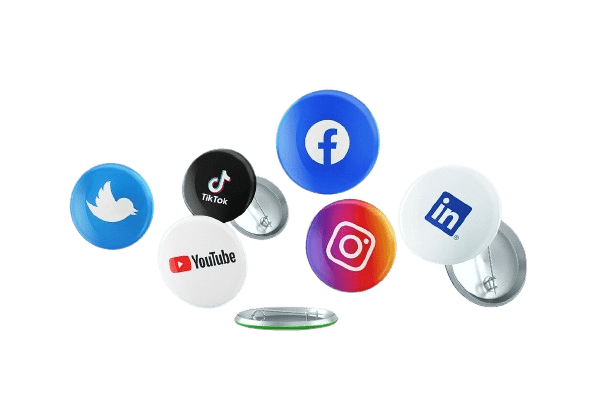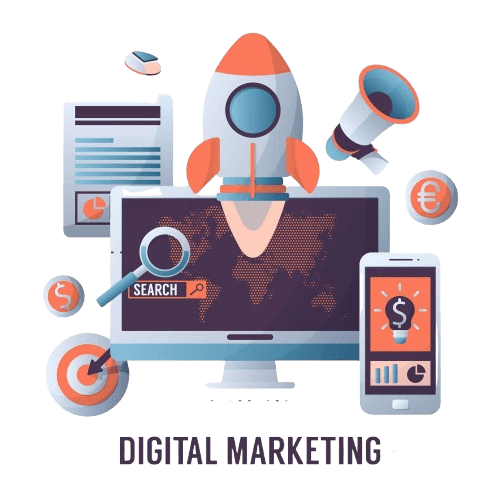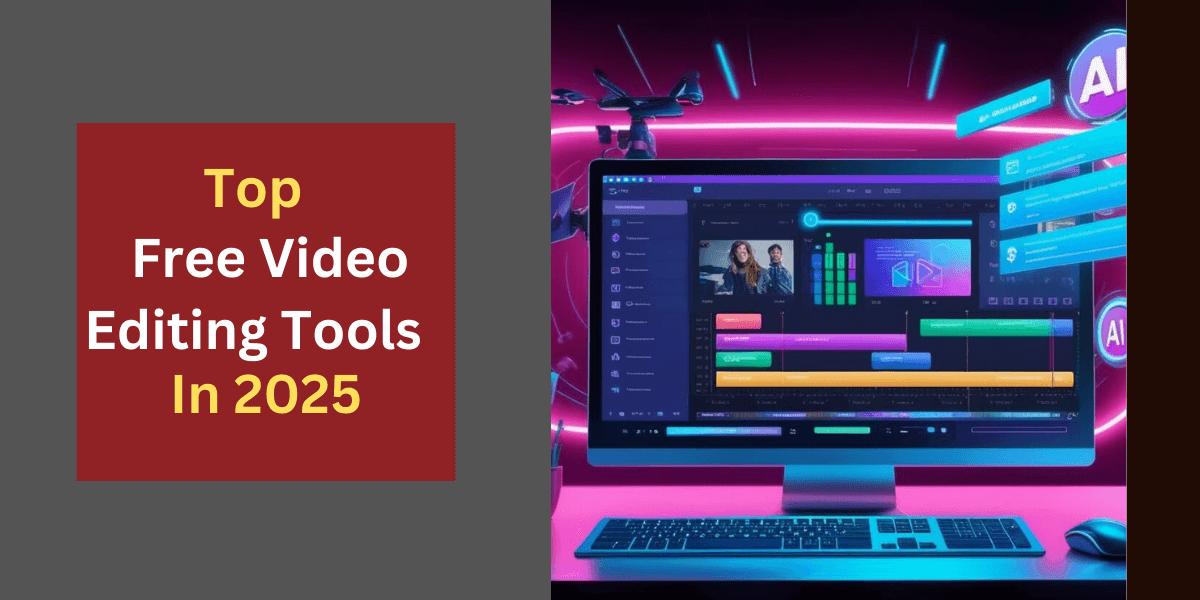In today’s digital age, new businesses and startups are emerging every day, and everyone wants to grow their business. The most effective solution to this problem is digital marketing. Digital marketing is a broad field that consists of many parts, and one of the important parts is social media marketing.
Social media marketing is a subset of digital marketing, where platforms like Instagram, Facebook, TikTok, LinkedIn, and Twitter are used. There are other modules of digital marketing as well, such as content creation, email marketing, SEO, and ad marketing.
In this article, we will understand in detail which will be better for your business: digital marketing or social media marketing. We will compare and review both so that you can find out which approach is more relevant for you. As the months of 2024 are passing by and the new year 2025 is approaching, it is important to understand which strategy will be the most effective for your business.
What is Digital Marketing?
In simple terms, digital marketing is a module where any business uses digital platforms to promote its services or products. Digital marketing is a broad field and consists of various types that help a business grow. Some important types are:
SEO (Search Engine Optimization)
Ads Marketing
Social Media Marketing
Email Marketing
Content Marketing
Different businesses use these strategies according to their niche and audience, such as search engines (Google, Bing), websites, social media, and emails.
Popular Types of Digital Marketing:
Search Engine Optimization (SEO)
Search Engine Marketing (SEM)
Web Development
Social Media Marketing
Pay Per Click Advertising
Email Marketing
Content Marketing and Content Writing
Video Marketing
Affiliate Marketing
Mobile Marketing
What is social media marketing?
What is Social Media Marketing?

Social media marketing is a part of digital marketing, where social media platforms are mainly used for marketing. Nowadays, people aged 14 to 60 are the most active on social media platforms, and most of the content uploaded here is short-term, like posts, stories, reels, and shorts.
The main strategies of social media marketing include paid ads, influencer marketing, content creation, organic marketing, and brand collaborations. In 2024, many businesses will have seen significant growth through this form of marketing.
Popular social media platforms:
Facebook
Instagram
LinkedIn
TikTok
Twitter (X)
YouTube
Pinterest
Snapchat
WhatsApp
Reddit
Benefits of Digital and Social Media Marketing in 2024
Both digital marketing and social media marketing have their own strengths. The same marketing strategy only works for some businesses; some businesses need to choose their marketing strategy based on their target audience. By looking at the benefits below, you can decide which marketing model will be best for your business.
Digital Marketing
Through digital marketing, you can reach your business in any corner of the world, whether it’s a local or international business.
Traditional marketing brings a lot of challenges and high costs, but digital marketing is budget-friendly, and you can use it both organically and through paid methods. You can target a specific audience interested in your products or services, which increases the chances of higher conversion rates.
SEO is an organic strategy that helps your website rank on search engines. This gives you consistent traffic over the long term.
With paid ads, you can target any audience, location, and time with accuracy, resulting in positive outcomes for your business.
You can track paid ad campaigns in real time, allowing you to see how much traffic you’re getting, the age group of the people visiting, and their locations. This tracking helps you optimize your strategy and make changes to your campaigns accordingly.
Another major benefit of digital marketing is that your business is never closed. Your business stays online 24/7 on digital platforms.
You have access to various analytics tools that help you track the performance of your ads and make necessary improvements.
These tools also allow you to analyze your competitors’ strategies and create a better strategy than theirs.
In this field, popular brands like Amazon, Apple, Zomato, and OYO gradually grew their businesses and became large brands over the long term.
Social Media Marketing
Through social media marketing, you can directly interact with your customers on platforms like Instagram, Facebook, LinkedIn, and Twitter.
It is much easier compared to digital marketing, and with low-budget paid ads, you can reach your targeted audience effectively.
You can track your campaigns in real-time and make immediate changes to the content if needed.
On social media, if you build a strong follower base, you will have a loyal community of followers that will support your brand.
Social media platforms provide insight tools that help you understand your audience’s interests and behavior. With this, you can upload relevant content and build a better connection with your followers.
Social media platforms also allow you to pre-plan your content. You can schedule a week’s or even a month’s content in one go, saving time and improving your content planning.
If any customer faces an issue, you can respond to their queries immediately, which helps in building trust.

Choosing Between Digital Marketing and Social Media Marketing in 2024
Whether it’s digital marketing or social media marketing, both play an important role in growing a business. Deciding which strategy to choose for your business depends on your brand and business’s future goals. You need to understand whether you want more sales, increased traffic, or simply greater brand awareness.
Additionally, your budget and the type of audience you want to target are also important factors. Only after considering these aspects can you choose the most relevant strategy for your business.
Now, let’s go over some key points that will help you decide which strategy—digital marketing or social media marketing—is best for your business.
What Is Your Business’s Primary Goal?
If your business needs greater awareness and visibility in a short time, social media marketing is a great option. On social media platforms, audiences respond quickly. If your service or product is good, people will quickly connect with you, and they can even become loyal customers. This can be the best option for short-term results.
However, if you want to grow your business everywhere—both locally and internationally—and need more leads and traffic, digital marketing is the best option. You can market for small or large businesses in different ways, whether it’s organic or paid. If you have a long-term vision, this is the strategy for you.
What Is Your Budget?
If you’re a new startup and have a limited budget, social media marketing is a good option. Social platforms don’t charge much for ads, so you can quickly reach your audience with a low budget.
But if you have a larger budget and a long-term vision, there’s nothing better than digital marketing. The more you invest in ads, the more accurate results you’ll get. Additionally, organic marketing can bring even more benefits in the long run.
Where Is Your Audience Most Active?
According to social media data, Instagram, Facebook, TikTok, WhatsApp, and YouTube currently have 2-3 billion monthly active users. The majority of content consumed on these platforms is short and long-form videos. In particular, people between the ages of 16 and 40 are most active on these platforms.
Digital marketing is primarily used by business owners, online marketers, influencers, and content creators. In this space, you’ll find industry experts and professionals. You’ll also come across both buyers and sellers.
Considering these points, you should now have an idea of which marketing strategy your business needs at this moment.
Digital Marketing vs. Social Media Marketing
Digital marketing and social media marketing both play a crucial role for businesses in their respective marketing sectors. However, many people, especially students who are looking to build a career in these fields, sometimes get confused about which one offers more job opportunities and where the future potential lies. So, let’s dive deeper into this topic.
Job Opportunities
Both fields will be in high demand in the future. Your career or job in these fields doesn’t depend on how valuable your degree is; instead, it relies on your skills and creativity. The more practical knowledge and decision-making skills you have, the brighter your career prospects will be.
Digital Marketing:
Digital Marketing Manager
SEO Specialist
Content Marketing Specialist
PPC (Pay-Per-Click) Specialist
Email Marketing Specialist
Conversion Rate Optimization (CRO) Specialist
Affiliate Marketing Manager
Social Media Marketing Specialist
Digital Marketing Analyst
E-commerce Specialist
Marketing Automation Specialist
Web Analytics Expert
Social Media Marketing:
Social Media Manager
Social media strategist
Content Creator
Community Manager
Influencer Marketing Specialist
Social Media Analyst
Paid Social Media Specialist
Social Media Copywriter
Social Media Consultant
Social Media Marketing Executive
Social Media Marketing Assistant
Social Media Campaign Specialist
Future in Digital vs. Social Media Marketing [2025- 2030]
Both fields are continuously evolving with new updates, techniques, and features. If you want to build a career in these sectors, you’ll need to stay updated and follow the latest trends and news regularly. These marketing models are not like they were 10-20 years ago; something new comes up every day.
Key Trends to Watch:
Video Marketing: Whether it’s social media or digital marketing, the demand for video marketing has already skyrocketed, and it’s going to increase even more in the future. Short-form videos like reels and shorts are being watched the most.
AI (artificial intelligence): AI is making tasks easier and more efficient, and its usage is increasing in both fields. In the coming time, AI will play a significant role in video editing, graphic designing, writing, machine learning, ad campaign copywriting, and data analysis.
Influencer Marketing: Influencers are individuals who have a strong fan following and audience on social media. These people promote small businesses’ products or services by connecting with their audience.
Voice Search Optimization: Nowadays, people don’t always type when searching on their mobile or other devices; instead, they use voice technology. Seeing this demand, many big companies are creating voice-enabled software products like Amazon Alexa, Google Assistant, and Apple’s Siri. This shows that the demand for voice search could increase in the future.
Conclusion:
In 2024, both digital marketing and social media marketing will become essential tools for business growth and higher earnings. Each approach has its own significance: digital marketing is ideal for global reach and long-term growth, while social media marketing is better suited for quickly building brand awareness and achieving short-term goals. The best option for you depends on your business objectives, budget, and target audience.
If you’re aiming for a broader reach, consistency across multiple platforms, and detailed analytics, digital marketing is a solid choice. On the other hand, if you’re looking to engage directly with your audience on social platforms, social media marketing will be more effective.
Ultimately, every business requires a unique strategy. By balancing both approaches, you can achieve the best results for your business. Whichever strategy seems more relevant to you, be sure to consider its benefits and the latest trends so you can guide your business in the right direction for 2024 and beyond.
Digital Marketing vs Social Media Marketing: FAQs
1. What is the difference between social media marketing and digital marketing?
Social media marketing is just one part of digital marketing. It focuses specifically on platforms like Facebook, Instagram, and Twitter to connect with audiences. Digital marketing, on the other hand, uses a broader range of strategies like SEO, content marketing, and email marketing to build long-term success. Both use paid ads, but digital marketing is more comprehensive.
2. What are the career opportunities in digital marketing and social media marketing?
Both fields offer many career options. In digital marketing, you can work as an SEO expert, PPC specialist, web analytics expert, or content marketer. In social media marketing, you could become a social media manager, content creator, influencer marketing specialist, or paid ad expert.
3. Which is more effective in 2024: digital marketing or social media marketing?
In 2024, digital marketing will be more effective because it covers multiple strategies like SEO, email, and content marketing, alongside social media marketing. Social media marketing is great for brand awareness, but digital marketing offers a full range of tools for long-term growth.
4. Can a business grow entirely through social media marketing?
No, relying only on social media marketing isn’t enough for long-term growth. To grow a business fully, you need a mix of strategies like SEO, email marketing, and paid ads to reach and engage a wider audience.
5. What is the future scope of digital marketing?
The future of digital marketing looks very promising. As more businesses and customers move online, demand for digital marketing will keep growing. With new trends like AI, automation, voice search, and personalized marketing by 2025-2030, digital marketing will become even more advanced. This means more career opportunities for professionals in the field.







